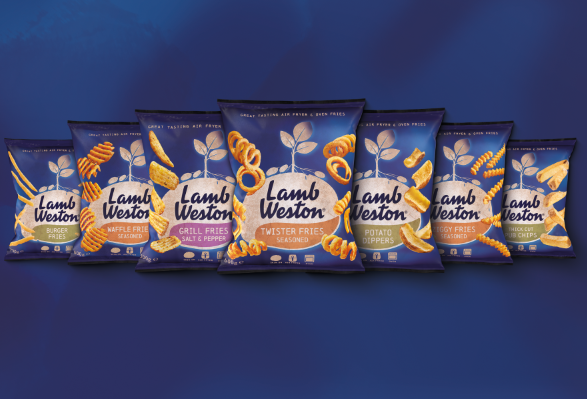Packaging made with SABIC polymer that uses mass-balance certified bio-renewable feedstock from used frying oil achieves around 30% carbon footprint reduction

SABIC, a global leader in the chemical industry, has joined forces with Lamb Weston, a major global brand owner and producer of frozen potato products, in a closed-loop process designed to create low-weight sustainable packaging bags made with a thin coextrusion film structure. At least 60% of the packaging is made with polymer using bio- feedstock from used cooking oil (UCO).
Khaled Al-Jalawi, Global Director of Circular Economy Business at SABIC, states: “We are excited about the collaboration with Lamb Weston and Opack Group in this closed-loop project. Such a project demonstrates the concept of circularity as it better utilize the UCO to produce circular polymers that is designed for recyclability and via a closed loop approach.”
The new Lamb Weston retail packaging has an overall renewable feedstock content of at least 60%, which is certified from the polymers to the film.
Sebastiaan Besems, VP Commercial EMEA from Lamb Weston comments: “Distributors, retailers and consumers have become increasingly conscious of their environmental impact and show a growing preference for more sustainable packaging. We have anticipated this trend and developed an industry-leading bio-circular retail packaging solution for our pre-fried frozen potato products that provides a highly responsible value proposition. As part of our ambitious sustainability plans and innovations for the frozen potato category, the brand’s new European retail pack is made with 60% bio-circular plastic originating from Lamb Weston’s used cooking oil and is ISCC PLUS certified. By using SABIC’s bio-renewable polymer, less and better packaging, this innovation reduces the carbon footprint of our retail bags by 30%, aligning with consumer expectations that FMCG brands are as environmentally friendly as possible. The success of this project also meets with our goals to halve our food waste, cut our overall product carbon footprint by 25% and move to more circular production by 2030.”
Laura Hanegraaf, Sales Manager at Oerlemans Plastics (subsidiary OPACKGROUP) adds: “The project solidifies the committed efforts we have undertaken with SABIC to promote low carbon and renewable products within our industry and represents a significant advancement. It allows us to offer our customers high-quality flexible film products made with renewable material from used cooking oil.”
Subscribe to our newsletter & stay updated.